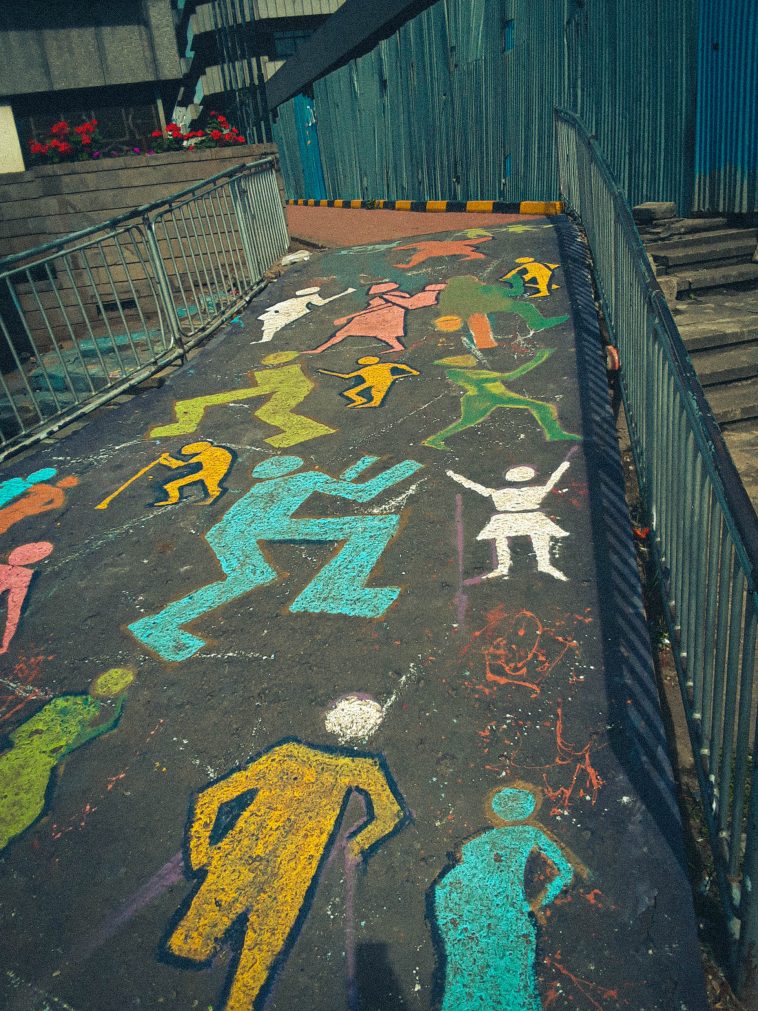‘’ My belief is that the clown is connected to the most innocent part of us. And that part of us is an unsocialised body.” Jonathan Majors.
In an interview with Variety, a media company in the U.S.A., actor Jonathan Majors pulled out a red nose. A piece of the clown costume and commented on how it reflects our hidden and most childish character. I couldn’t help but question the validity of this statement.
Up until a couple of years ago, the clown was associated with the circus. He or she would dress up in a standardised cartoonish outfit with a heavily powdered face, layers upon layers of make up, a red nose and for most cases over sized shoes. In their act, a clown would behave comically, cartoonishly or perhaps clumsy naivety all for the purpose of entertaining the audience.
However, the clown has evolved and is now synonymous with embarrassment, foolery, horror, innocence and unrequited affection. All these are meanings that have been attached to the word and character of the clown.
Media like ‘IT’ the movie released in 2017 and book in 1986 have had their take on the scary clown. A story that tells of a creature who takes on the shape of a clown and eats people, for the most part children. To add to the horror, it intentionally scares its victims because terrified prey tastes better. Such a portrayal of clowns has implanted spine-chilling ideas in the minds of people and as it has grown to become popular culture. For many people, the clown that they see is a terrifying creature and when they see entertainers dawn this costume it simply takes them back to what they watched and read in that media. A blood thirsty monster pretending to be jolly but waiting to pounce on them at anytime.
Elsewhere, when one thinks of the clown or clowning what comes in mind is self degradation, but then what exactly is self degradation because a situation can be read from different angles where in one scenario the action is degrading and the other is acceptable. For example, dancing while singing frantically on a table in public is seen as unruly, uncivilised, and borderline insane. But when you are doing it with someone else, observers are more likely to give it a pass because in that context people will assume you are having fun and for the most part, people don’t like interrupting the happiness of others. When everybody in the room is doing it, it becomes okay, and everyone appears to agree with what’s going on. That doesn’t change the fact that it still is a self degrading situation to put yourself in. what changes is the response to it from the people around and the number you can influence to do it with you.
Usually these actions are taken to attract a potential lover or beneficiary. We even feel the same about it when we are putting effort into getting to know someone or build something with others, but we are clearly doing all the work and the other person like an audience clap, laughs and metaphorically spits in your face but would never join you or reciprocate the time and energy you’re putting into that endeavour. This one-way social interaction leaves a feeling of rejection which causes depression.
The depressed clown had always been a phenomenon in our culture portrayed by artists in their artwork with irony where they’d have a sad clown seated in lifeless position and several other satirical expressions. But in 2021, it’s taken a whole new face. In 2019, a movie titled ‘Joker’ was released, putting to light the pain we cause to those we don’t see fit to be in mainstream society. Following the story of Arthur Fleck, a clinically depressed man cast aside by society who despite his efforts to get rehabilitated back into society is failed by the system and spirals into a chasm of anger and hatred. The alienated, mentally ill character becomes the depressed clown, something many people sympathised with, and others related to so much so that the rebellious form the character transforms into by the end of the movie becomes a symbol of resistance in the real world. Resistance against oppression, neglect, and rejection from the world governments.
Rejection is what we most fear in the social game. To expose who you are to someone or to the society, to strip off your garments of civility and become the child of your being Infront of the world and to be told NO. That alone is one of the most terrifying experiences in ones’ lifetime, and to go through it repeatedly gives people the feeling that they witnessed in the Joker movie. A character going through a lifetime of rejection and not being able to overcome it to the point that it consumes him.
Many of us become the depressed clown after constant rejection. We become a joker, embracing the feeling of being constantly reduced to an entertainer with no personality beyond his act. We exposed our child, our flaws and insecurities and got told what we feared about them all along. That they are disgusting, and it bursts our bubble of confidence. Even if they may not be as bad as we think they are. In contrast to this one can see when one doesn’t attach an expectation to the people one is trying to entertain or get attention from, when a rejection comes they are less affected. An example could be the circus clowns, entertainers by nature but when a child screams in their face and runs away because they fear them, they don’t take it personally instead they acknowledge it as an occupational hazard.
The resemblance between the playful clown to our rawest self, to be open and playful and free to jump onto a table, dance and sing on it without worry of being told not to and without care of consequence. That type of persona is carried by the innocence of childhood. To know societal norms and ignore them nonetheless, and I think what Jonathan Majors said sheds some new light on the whole aspect of clowning.
Could we all be hiding a clown within ourselves?
The whole act of an adult dressed like an imaginary character with white make up and a red nose playing and performing childish, funny, and unusual acts could be something we all have deep in us but are only willing to act them out for someone or an audience that we think will not only like and applaud them but also accept that part of us without condemnation.
MANIPLE DENZEL EVERD
Editors:
Andinda Mark
Maniple Daphanne
Elizabeth Otieno
Ivan Ahabwe
This post was created with our nice and easy submission form. Create your post!






